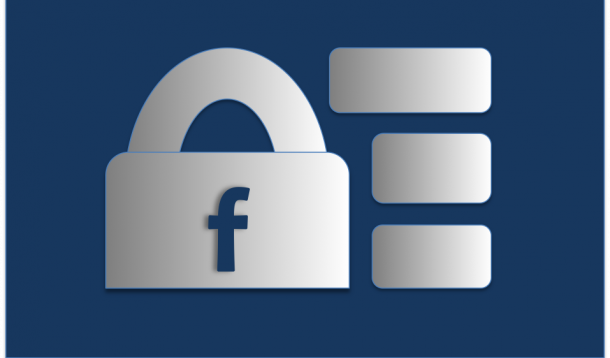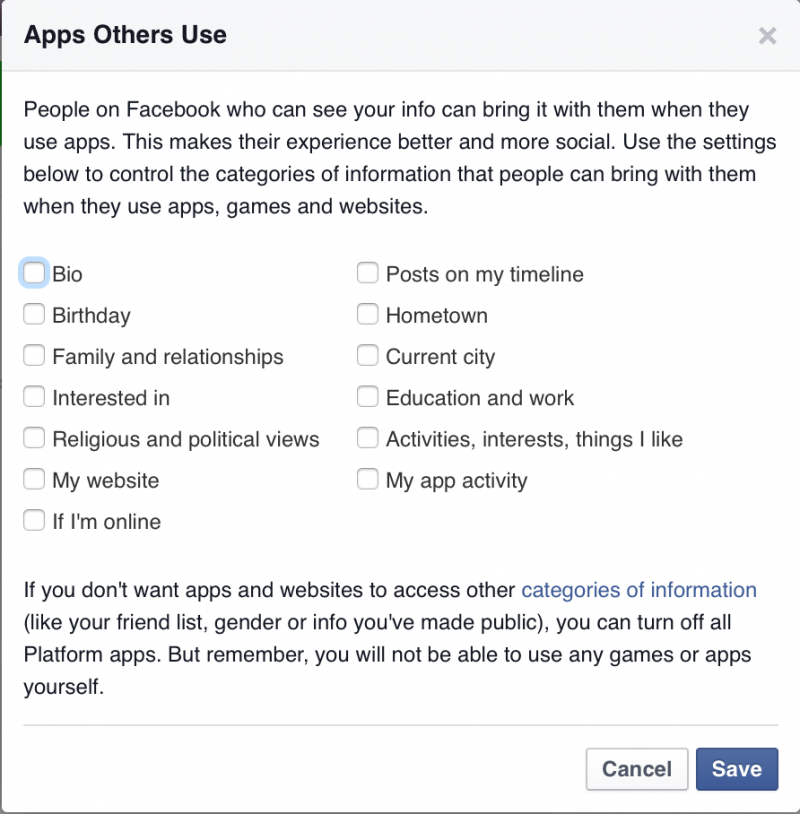
Facebook is still my favourite social network; I love the connection with long distance family, friends (new and old), and the curated list of articles for me to read. This is a service I am happy to pay for. Of course no money is exchanged to use Facebook. You pay with personal information.
Facebook uses your data in two ways:
Beyond your basic privacy controls that dictate who sees your timeline information ( which can be found in the Privacy Settings), these are the settings you can, and should, use to protect everything else.
The Apps Settings page in Facebook allows you to control how third party applications interact with your data. It also controls how external sites use your data when your friends log in. This is key so I will repeat it, even if you have never visited the site, these settings also indicate what a site can take from your profile via your friend who has signed in.
Inside the App Settings, you will find a setting called Apps Others Use. This is the area where you decide what information websites and apps can take from you through your friends. Uncheck anything you would not want an outside party to know without your knowledge. My humble opinion: if your profile privacy is set to “Friends”, you do not want any of it shared outside that circle so probably best to uncheck it all. Make sure to save changes.

Networks like to track what you are doing online. This is often done via cookies, or files that contain information about you and your computer use. If you have logged into Facebook on a computer and not logged out (even if you have closed the tab), a Facebook cookie can be shared with every other site you visit. In turn, that site shares information about what you have searched back to Facebook.
The Ads page has a setting called Ads based on my use of websites and apps which allows you say no to what they call “internet based ads”. Turn this off so that next time you are shopping for a dryer you won’t see those ads show up on your Facebook sidebar. This limits the information shared from site to site.

Researchers say Facebook probably knows more about us than we do ourselves. They are probably right. Though many people would deny liking taboo articles or websites, Facebook knows if you have clicked on them or not. Want to know who Facebook thinks you are? Check out your Ad Preferences for a full list of topics targeted at you. If you don’t like an item you can remove it. Or you can leave it there to confuse the system.

![]() RELATED: Facebook Finally Getting the Button You've Been Waiting For
RELATED: Facebook Finally Getting the Button You've Been Waiting For